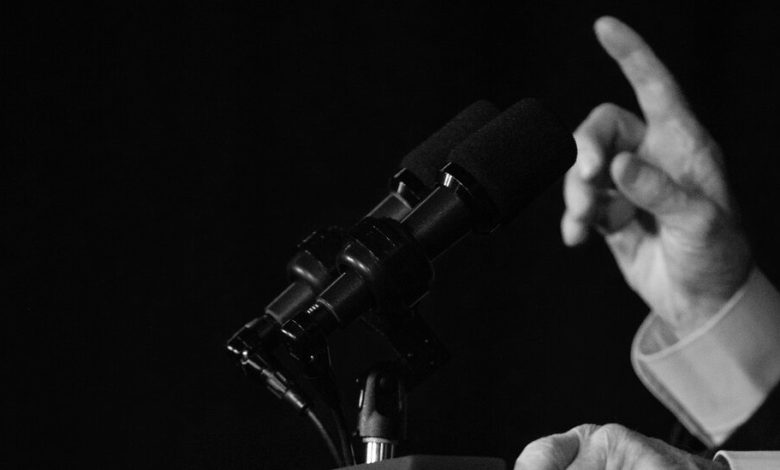Biden Can Do Something at the Debates That Trump Never Could

In 1960, I sat on the living room floor in front of a black-and-white television and watched one of the presidential debates between Richard Nixon and John F. Kennedy. It wasn’t my preferred programming, but my parents were watching it and communicated to me that this was sort of a homework assignment, as in, “this is how democracy works.” I was nearly 8. I remember fidgeting with the shag carpet, wondering how long this was going to go on, yet also taking in the fact that the two men on the screen opposed each other, probably didn’t like each other, but were being unfailingly polite in their disagreements. My takeaway was: This is how adults are supposed to behave.
Twenty years later, in 1980, I watched my father, Ronald Reagan, debate Jimmy Carter. There was the moment when then President Carter decisively (but politely) criticized my father for his opposition to Medicare. My father smiled, cocked his head and said, “There you go again.” He went on to explain that though he had opposed one bill, he had favored another that he thought would have offered better health care. What was memorable was the way he did it — without anger, without sarcasm or meanness, but instead with humor. Shrugging off the criticism and gently, easily setting the record straight came across as a stark contrast to Mr. Carter’s solemn demeanor. In that moment, I think, he won the debate, showing Americans, some of whom had questions about his temperament, that he was unflappable.
Cut to 2000, when George W. Bush and Al Gore debated. There was a moment in the third debate when Mr. Bush was speaking and Mr. Gore crossed the stage and got way too close to his opponent. Mr. Gore basically invaded his space, but Mr. Bush just turned, gave him a friendly nod of his head and smiled. He may as well have said, “Howdy.” Mr. Gore may have scored more points on substance, but people remembered that moment. They remembered the guy who exuded a coolheaded likability in the tense environment of a debate.
Many of us still recall when people in the political arena were expected to meet a base-line level of dignity, when candidates presented themselves as adults who understood the value of civility — because, they thought and we all generally believed, that’s what voters wanted and expected. But sadly, there are more and more Americans who regard maturity, sportsmanship and most of all civility in politics as elitist, phony hallmarks of an establishment that doesn’t talk or act like regular people. As a result, some politicians think of campaigning as another version of an M.M.A. fight. There was a time when presidents gave State of the Union addresses without being heckled by the elected representatives sitting in the audience. There was a time when candidates debated one another without interrupting and insulting. There was a time when Republican presidents and Democratic speakers of the House spoke to one another like Americans in the same boat together and tried to solve problems in a give-and-take. Seems like a long time ago, doesn’t it?
It’s true that not everything in the past was clean and respectful. Politics has always involved some insults and name-calling. But there was a huge change in 2016. Donald Trump pulled the cork out of the bottle, made cruelty mainstream and was rewarded for it. A disabled reporter was mocked; Republican rivals (and their relatives) were smeared; crowds of people, when Hillary Clinton’s name was invoked, chanted, “Lock her up!” And the man who gave permission for all of it was sworn in as president.
So who are we as a country? Do we revere democratic principles and know that in order to uphold those principles, civil discourse is vital? Or have we become so enamored of down-and-dirty fighting that we can’t seem to get out of the mud pit?
